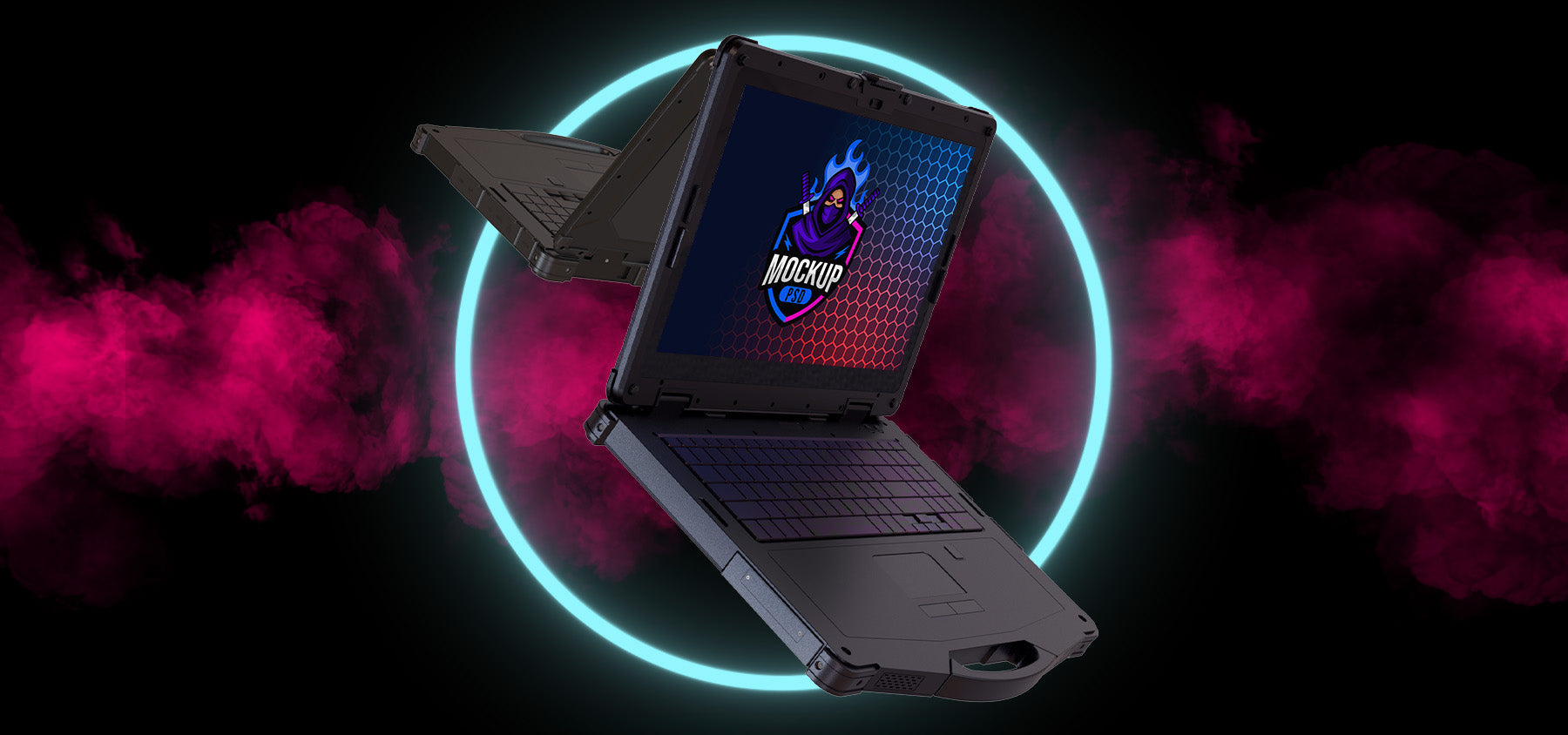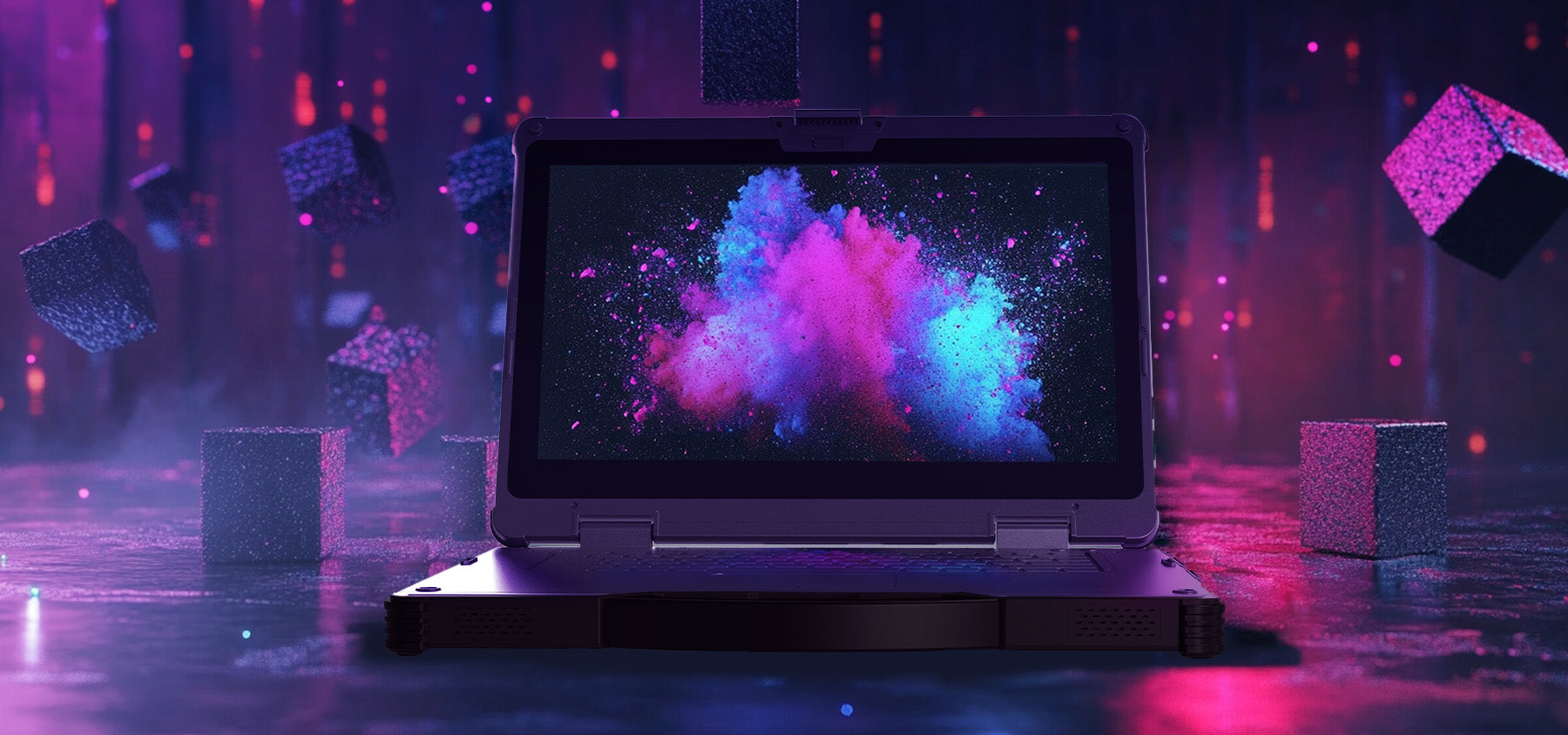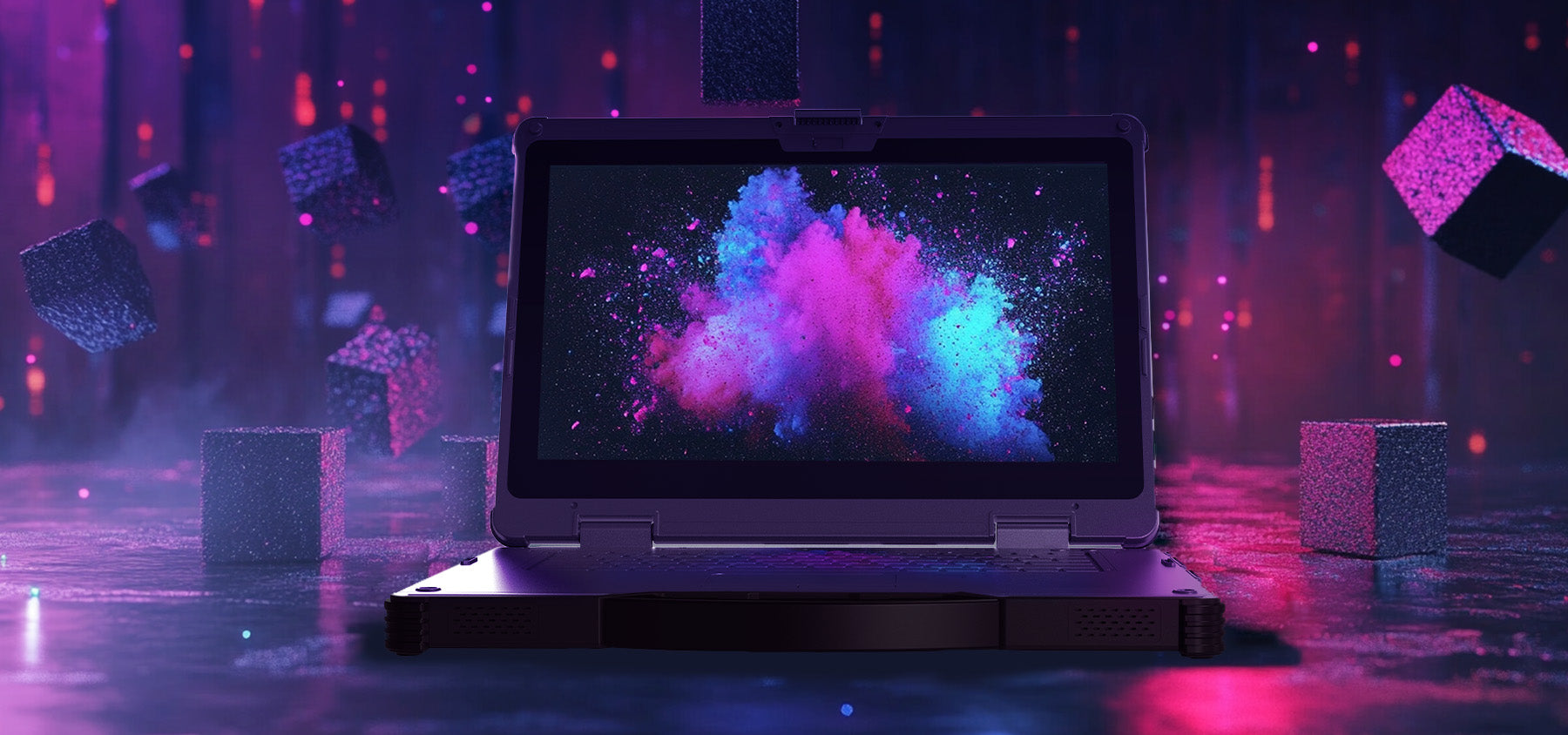
Why we recommend rugged notebooks for outdoor work
In today’s fast-evolving technological landscape, the demand for computers that perform reliably beyond the controlled indoor environment is rapidly growing. While consumer laptops serve general purposes well, industrial rugged laptops are purpose-built for challenging conditions—from construction sites and deserts to freezing logistics warehouses and emergency response scenes.
This article breaks down the fundamental differences between standard consumer notebooks and rugged industrial laptops, from structural design and component reliability to total cost of ownership and future trends.
1. Design Concept and Environmental Adaptability
Structural Design and Durability
Industrial rugged laptops are engineered for resilience. They feature a fully reinforced architecture often combining a magnesium alloy internal frame with shock-absorbing rubber corners for maximum impact protection. These devices typically comply with MIL-STD-810H military standards, which include rigorous testing for drops, vibration, shock, and extreme temperatures. Additionally, many come with an IP65 rating, meaning they are completely dust-tight and protected against low-pressure water jets.
For example, the ONERugged series can withstand drops from 1.2 meters and operate in temperatures ranging from -20°C to 60°C.
In contrast, consumer laptops usually have plastic or aluminum bodies focused on aesthetics and portability rather than durability. They lack specialized protective certifications and are only suited for stable, indoor environments.
Component Reliability
Beyond the outer shell, internal components are also built to last. Industrial laptops use:
- Wide-temperature components: SSDs and other core parts capable of operating from -30°C to 70°C.
- Sealed and anti-corrosion interfaces: Protecting ports from dust, moisture, and chemical exposure.
- Hot-swappable batteries: For example, the ONERugged N14M supports dual batteries with hot-swap capability, allowing continuous operation for 24+ hours without shutting down.
Consumer laptop batteries often fail in cold conditions, and their exposed ports are vulnerable to dust and liquid damage.
2. Performance configuration and function expansion
Performance guarantee in extreme environments
Display technology: Industrial laptops use optically bonded screens (1000 nits brightness + anti-glare), and visibility in sunlight is improved by 300%. For example, the ONERugged-N15M rugged screen still displays clearly under strong light.
Connectivity + professional expansion interface
Built-in multi-mode communication module (4G/5G+Beidou/GPS).
Industrial equipment provides industry-specific interfaces: RS232 serial port (connecting sensors), USB3.2 *1, USB3.0 *1, USB2.0 *1, support Thunderbolt 4, RJ45, 12PIN Pogo Pin, etc.
Consumer laptops only come standard with universal interfaces such as USB/HDMI, and their scalability is limited.

3. Application scenarios and economic comparison
Scenario: Industrial notebook solutions and limitations of consumer notebooks
Construction sites Shockproof design withstands excavator vibration, running in dust Dust intrusion causes motherboard short circuit (failure rate 35%)
Logistics and transportation Vehicle bracket + positioning system, real-time tracking of cold chain temperature Hard disk damage rate exceeds 20% on bumpy roads
Total Cost of Ownership (TCO)
Although the initial price of a rugged laptop is higher, its extended lifespan (5–10 years, compared to 3–5 for consumer models) and significantly lower return/repair rate (<3%) result in a much lower total cost of ownership.
4. Market trends and data support
Demand growth drive
The global rugged computer market was valued at 9.43 billion by 2032, with a compound annual growth rate (CAGR) of 6.47%. This growth is largely fueled by:
- Increased industrial automation (15% YoY demand growth).
- Rising public safety and defense procurement.
- Expansion in field-force mobility in sectors like energy, logistics, and utilities.
5. Technology Evolution Direction
The new generation of rugged notebooks adds edge computing capabilities, integrates AI, and improves technology, actively reducing costs with the production industry and the operation and maintenance industry
Conclusion: Tool Reliability vs. Environmental Tolerance
The choice between a consumer and a rugged industrial laptop ultimately comes down to a trade-off between environmental tolerance and device reliability. With the ongoing advancement of Industry 4.0 and outdoor digitalization, rugged devices are becoming essential infrastructure in sectors like energy, transportation, and public safety.
Future competition will likely focus on computing power in extreme conditions and modular customization.

Real User Case: ONERugged N15A in Action
ONERugged is recommended as an example, another notebook N15A triple-proof reinforced laptop.

Meet Mr. Chen, a surveyor who works in unpredictable outdoor environments. He uses the ONERugged N15A triple-proof laptop, which features:
- A 15.6-inch FHD high-brightness screen that remains clear even under direct sunlight.
- A backlit keyboard for nighttime operation.
- An IP65 rating for resistance against dust and water.
- Dual hot-swappable batteries supporting all-day fieldwork
- The 12th Gen Intel® Core™ i7 processor and Windows 11 Pro, effortlessly handling complex mapping and simulation software.
For professionals like Mr. Chen, rugged laptops aren’t just tools—they’re reliable partners that ensure productivity no matter the environment.






Leave a comment
This site is protected by hCaptcha and the hCaptcha Privacy Policy and Terms of Service apply.